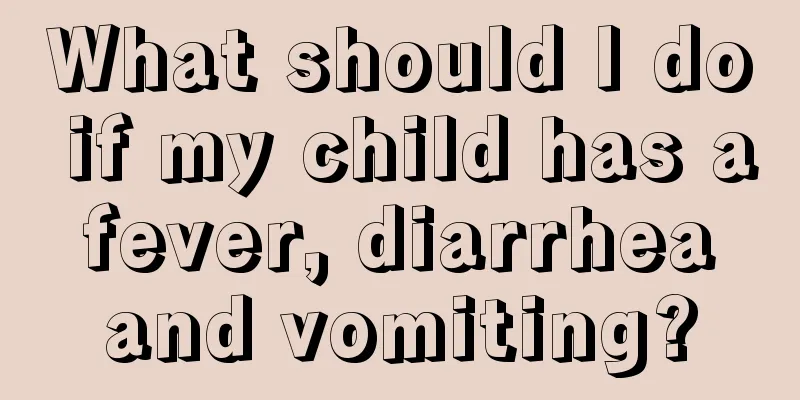How long does a full-month baby sleep in a day?

|
Babies are the most difficult group to understand, because they cannot speak, cannot express themselves, have immature consciousness, can only cry and laugh. They are so small and so fragile, and they happen to be the most cherished treasures of the whole family. Therefore, taking care of babies becomes a problem. New mothers can only pay attention to the changes in their baby all the time. Mothers without any experience are worried about letting others take care of the baby, but they don’t know how to take care of the baby themselves. What should they do? Today we will talk about how long it is normal for a one-month-old baby to sleep a day. The baby had trouble falling asleep during the day and before 12 o'clock at night. Sometimes he would cry when I held him. But he fell asleep very easily these days. Basically, he would wake up for a while when he was hungry, and fall asleep again after taking a few sips of milk. Is this sudden change normal? The infancy period is from one month to one year after birth. Sleep during this period is closely related to the child's physical and mental health. Children's brains are easily fatigued. Only after proper and sufficient sleep can the child's brain be completely relieved of fatigue. Only then can he eat well and play well. We often see children crying and refusing to eat or play. This is often because they are sleepy or tired. At this time, we need to give them a quiet environment and let them go to sleep. Generally speaking, children need much more sleep than adults, and the younger they are, the longer they need to sleep. Children aged 1 to 3 months should sleep about 18 hours a day. They should sleep four times during the day, each time for 1.5 to 2 hours, and 10 to 11 hours at night. This means that except for feeding, changing diapers, and playing for a while, most of the time is spent sleeping. By carefully observing the sleeping state of infants and young children, you can understand whether the infants and young children are healthy or whether they are suffering from any illness. Normal infants and young children sleep quietly after falling asleep, breathe lightly and evenly, have slight sweat on their heads, have relaxed faces, and sometimes have smiling expressions. If the following abnormal sleep phenomena occur, they are often signs of latent or onset of illness: (1) The child has restless sleep, cries and moves around from time to time, and has a restless sleep. (2) The skin all over the body becomes dry and hot, the breathing becomes rapid, and the pulse rate exceeds the normal rate. (3) Feeling restless after falling asleep, with excessive sweating on the head (wetting the pillow), frequent crying and making noises, shaking the head and scratching the ears, and waking up easily during sleep. After sleeping, there is a painful or crying expression. These babies should go to the hospital to be examined and treated by a doctor. We can see that infants and young children sleep much more than adults. Newborns sleep almost all the time except when they are awake to feed or have a wet diaper. The baby's nervous system is not yet fully developed and the brain is easily fatigued, so getting more sleep is exactly what the baby needs for growth and development. It can be seen from this that infants and young children need much more sleep than adults, and the younger they are, the more sleep they need. Newborns sleep all the time except for eating, drinking, defecating and urinating. This is because their nervous systems are not yet fully developed and their brains are more easily fatigued. It is normal to sleep more, and it is also a necessary condition for their physical growth and development. |
<<: How long should a three-month-old baby sleep a day?
>>: What to do if your child has a severe dry cough
Recommend
What to do if your child's bottom is flooded
Red buttocks is also called flooded buttocks. Man...
What should I do if my baby’s conjunctiva is inflamed?
Many parents say that their babies have been acti...
What are the solutions for children talking in their sleep?
Sleep talking is a very common phenomenon and usu...
Occult blood in newborns
If there is occult blood in the newborn's sto...
Is it vitiligo if there are white spots on the child's belly?
Many parents will find some white spots on their ...
What should I do if my child has a broken tooth?
Children will slowly start to grow teeth as they ...
Seven truths about baby fever
1. Fever starts at 38 degrees Celsius When the ba...
The child has wheezing breathing
Generally speaking, children's breathing is s...
How to correct children's stuttering
Speaking of stuttering, I believe everyone is fam...
How to educate children who bite others
Children do not need to have self-discipline and ...
How to make breakfast for children
Many parents often have a headache because their ...
What causes itchy hair in children?
A child's body is in the development stage an...
What should children with severe anemia eat?
Many children suffer from anemia due to congenita...
What is the reason for the baby's earwax to smell?
Nowadays, people’s living environment is relative...
What is the cause of the child's retinal hemorrhage?
Many families are worried when they see their chi...









